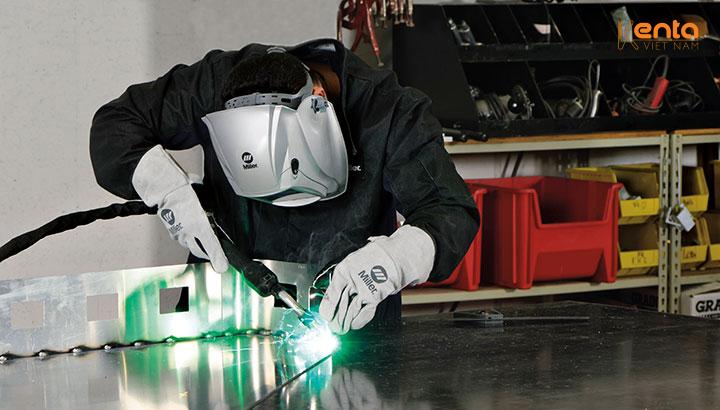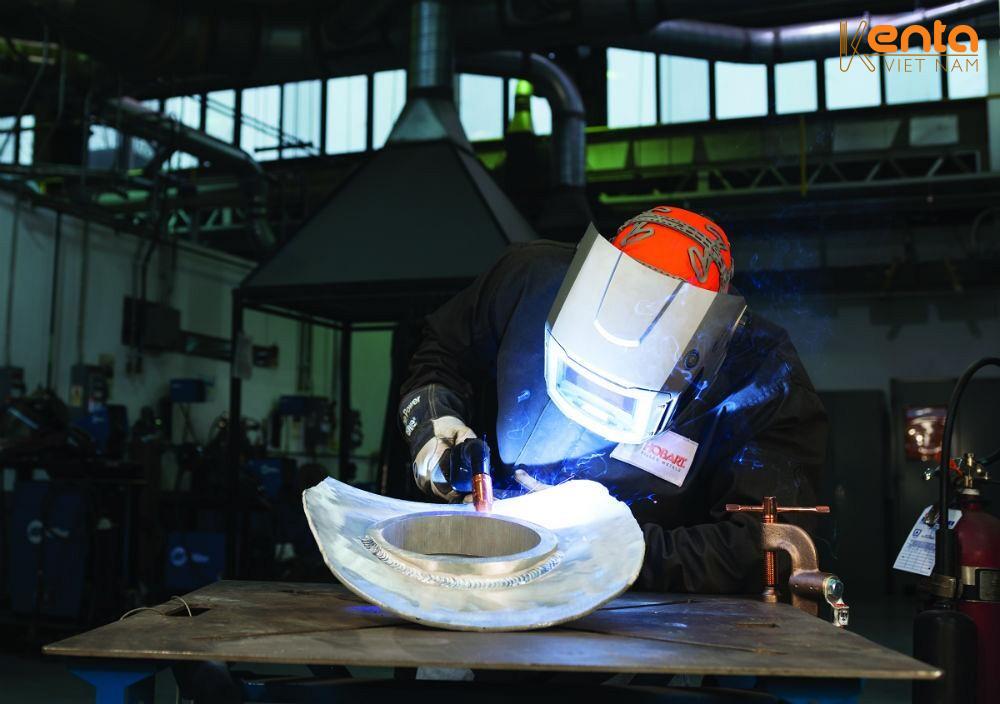Knowledge, Technology
Is aluminum welding durable compared to steel welding?
In the fields of mechanics, manufacturing, and construction today, choosing welding materials depends not only on cost but also on long-term durability, aesthetics, and adaptability to the usage environment. Therefore, the question "Is aluminum welding durable compared to steel welding?" often makes many people hesitate, especially when projects demand high precision and durability.
Aluminum and steel: differences from their nature
Aluminum is a lightweight metal with a shiny surface and excellent natural corrosion resistance. This is why aluminum is often used in industries that require lightness, such as transportation, electronics, or outdoor consumer goods. Especially, aluminum sheet series 5052, 5083, and 6061 are popular due to their good weldability and fairly stable strength after proper treatment.
Steel, on the other hand, is a material with higher mechanical strength and superior load-bearing capacity. However, a visible drawback of steel is its tendency to rust easily, especially when frequently exposed to humid air or marine environments. Therefore, to ensure the longevity of steel welds, people often paint anti-rust coatings or galvanize after welding.
Are aluminum welds really weaker than steel welds?
The truth is: not necessarily. If you use the appropriate type of aluminum sheet and the correct welding wire, aluminum welds can achieve very high durability. At Kenta Vietnam, many customers have used aluminum welding wires ER4043 or ER5356 for applications requiring long-term durability such as ship hulls, vehicle frame parts, containers… and all highly appreciate the weld's solidity after completion.

Unlike steel welding, aluminum welding requires pure shielding gas like argon and proper current adjustment techniques. Without good preparation, the weld may suffer from gas porosity or insufficient penetration, which affects durability. But when you use aluminum alloy sheets with good weldability like 5083 – which Kenta has clearly quality-tested – the results usually exceed expectations.
Conversely, steel is much easier to weld. Steel welds do not demand strict conditions for shielding gas or surface cleaning. Simply choosing the right welding rod or suitable CO2 wire can produce strong, even, and stable welds.
The environment determines weld durability
Even with the same welding technique, placing the product in two different environments will result in significantly different weld lifespans. This is why outdoor or coastal projects often prefer aluminum over steel.
With its natural oxidation resistance, aluminum – especially the Kenta-imported aluminum sheets from Europe and Korea – can resist corrosion without the need for painting. Meanwhile, steel welds, if not carefully protected, rust easily, crack, or weaken after a few years of use.
In other words, if you are working on a project in harsh environments with high humidity or salt exposure, aluminum welds will be the optimal choice for durability and long-term stability.
Material quality is the lifeblood of welds
There can't be a durable weld if you use low-quality materials. With experience supplying hundreds of projects nationwide, Kenta Vietnam clearly understands the importance of choosing the right aluminum welding wires meeting ER4043, ER5356 standards, and aluminum sheets with clear origins and full CO-CQ certification.

An aluminum weld cannot be durable if the oxide layer on the surface is not properly treated or if the welding wire is not compatible with the aluminum grade used. Conversely, when all those factors are controlled – from materials to technique – you can be completely confident in the product’s durability.
Kenta currently supplies SAFRA aluminum welding wire – a reputable Italian brand trusted by many welders and businesses for its stable flow, good adhesion, and bright beautiful welds.
Aluminum welding: a sustainable solution for the future
In the context of industry moving toward lightening, environmental friendliness, and reducing maintenance costs, aluminum is gradually becoming the top choice. Although it demands higher technical skills than steel, mastering the technology makes aluminum welding bring great benefits both economically and technically.
If you are hesitating between aluminum and steel,Please clearly identify the usage needs, operating environment, and load requirements. In many cases, aluminum – combined with the proper welding wire and high-quality aluminum sheets – is the answer for a durable, beautiful, and stable product over time.
So, is aluminum welding durable compared to iron welding?
The answer does not lie in the nature of the material but in how you use and choose the right materials. Iron welds are strong in load-bearing structures but are prone to rust if not well protected. Aluminum welds require higher skills, but when using the right welding wire and aluminum sheets from reputable suppliers like Kenta VietNam, their durability is not inferior and can even be superior in harsh environments.
Therefore, do not hastily judge aluminum welding as "less durable" just because it is harder to weld. When you invest in the right materials and proper construction, aluminum welds can be a reliable choice for many modern applications.




















